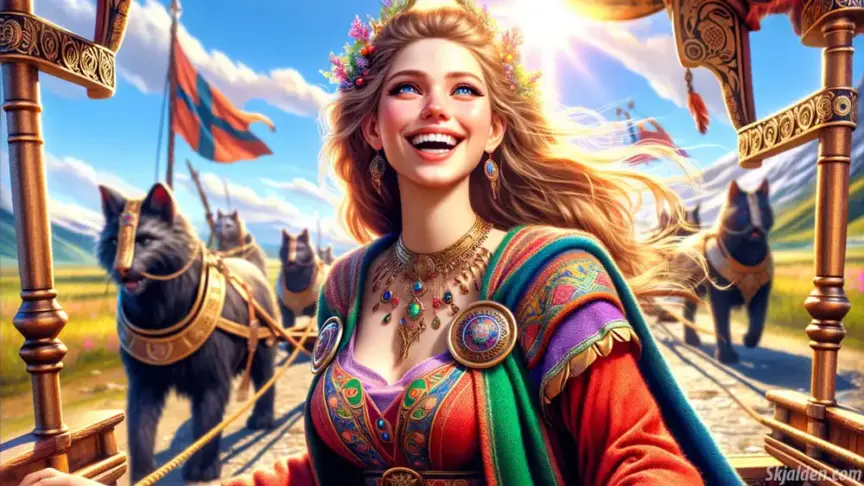Have you ever wondered about the origins of the names of the days of the week? One particularly interesting example is Friday, or as some might call it, “Happy Freya’s Day“. This name, deeply rooted in Norse mythology, has fascinating connections to two notable goddesses: Freya and Frigg. These two figures, often intertwined in mythological narratives, have led to a captivating blend of history and legend.
Freya and Frigg: A Tale of Two Goddesses
In Norse mythology, Freya and Frigg appear as two central figures. They share numerous similarities, which has led to debates and confusion over the years about their identities. In particular, both have been credited with influencing the naming of Friday – a day that holds significant cultural and historical value.
When discussing the origins of Friday’s name, geographical and linguistic differences come into play. In English-speaking regions, the name seems to echo ‘Frigg’, hence the association with the goddess Frigg. This connection is quite apparent when you look at the word ‘Friday’ and its resemblance to ‘Frigg’.
On the other hand, in Scandinavian countries, where Norse mythology originates, the day is known as ‘Fredag’. This term bears a closer resemblance to ‘Freya’, leading to a stronger association with this goddess in these regions. It’s fascinating to see how language shapes our understanding of mythology and history.
To delve deeper into the rich stories of these goddesses and their influence on our calendar, visit my comprehensive page about Freya. Here, you’ll find a wealth of information about Freya’s role in Norse mythology.
The Lingering Confusion: Whose Day Is It?
The enigma surrounding “Happy Freya’s Day” intensifies when we consider historical sources. These texts reference both ‘Freyjadagr’ (Freya’s day) and ‘Frjádagr’ (Frigg’s day), proto-Germanic: Frijjōz dagaz “day of Frigg”, suggesting that both goddesses have a legitimate claim to the day.
For those interested in exploring the Norse calendar and its unique structure, my Viking lunar calendar page offers a detailed look into how the ancient Norse people marked time and the roles that gods and goddesses played in their understanding of the universe.
In summary, the story behind “Happy Freya’s Day” is a mix of language and cultural interpretations. Whether it’s Freya or Frigg who lays claim to the day, the legacy of Norse mythology continues to captivate and inspire, offering a window into a world where gods and goddesses rule the heavens and the earth.
